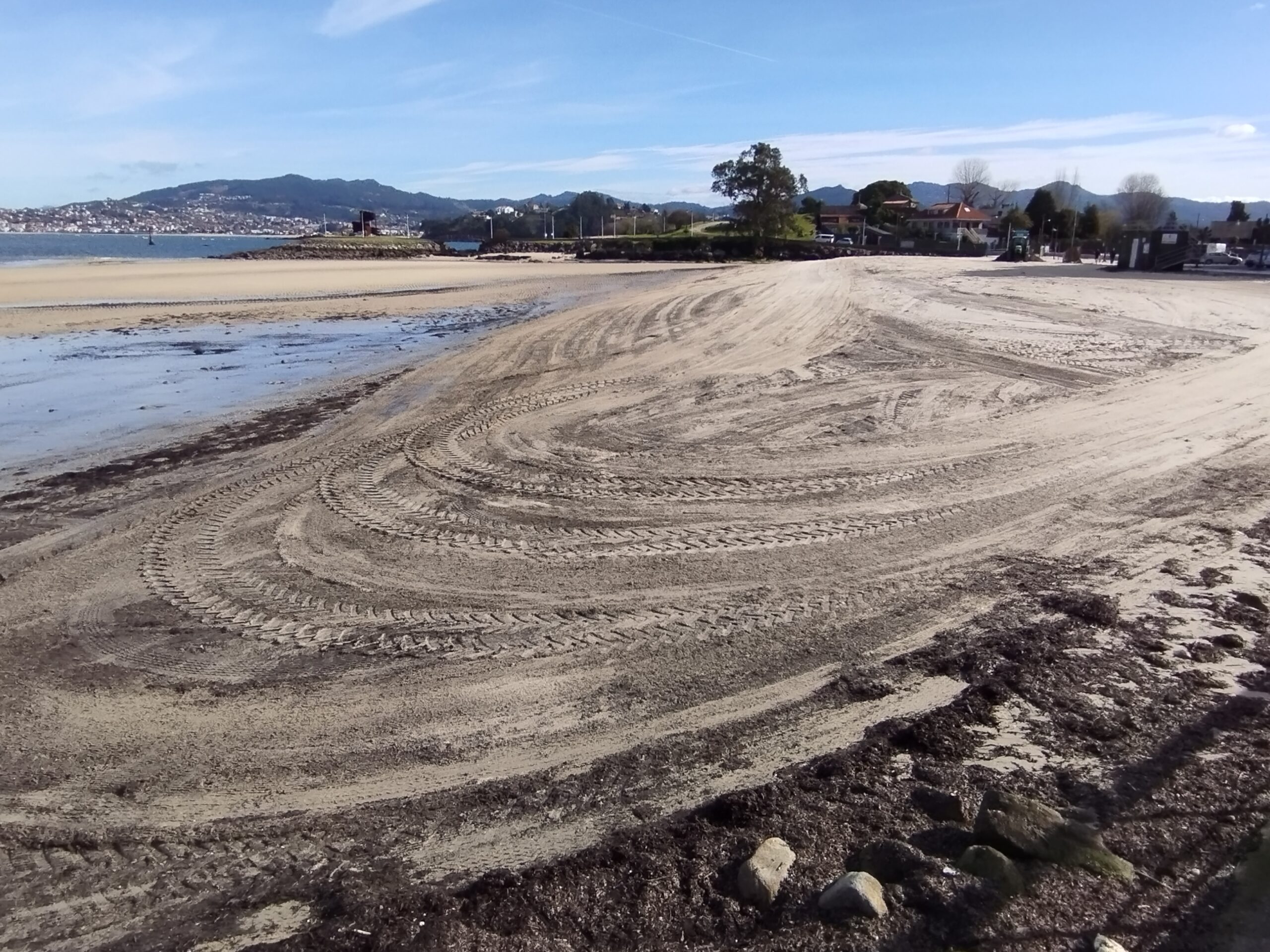Photo: Santa Marta beach (Baiona, Galicia)
I know that this headline may be a bit shocking, and of course, after the pellet season, everyone will be throwing their hands up. Yet, before crucify me, I wanted to tell you that I would like to talk about something else: the responsibility of beach cleaning by city councils.
In Galician touristic municipalities like this one where I live, it is frequent, if not recurrent, that when tourist season approaches, bulldozers begin to remove the sand from one side to the other. We can only understand this if we consider a beach just as a place of leisure, where people put a towel on the sand – which must be “clean” – and lie down to relax. Of course, I don’t want to say that this is wrong; I would even dare to say that it is a healthy act in its proper measure. However, perhaps we should ask ourselves why to enjoy the beach we have to destroy the entire marine ecosystem that lives around our sandy beaches. Can anyone imagine taking a bulldozer in the forest because we want to go for a snack? No one would say under a tree: how disgusting, the ground is full of branches! Well, perhaps we understand what nature means in the mountains, but not yet on the beach.
The beaches are like a living creature, which heart beat to the rhythm of the tides and waves. On the beaches, everything moves at a natural rhythm, marked by the seasons and meteorological changes, but always with a speed where nature sets the pace. However, humans, always wanting to be more efficient and faster, we don´t understand it. Our calendar is a perpetual fight against the natural world, and for this we respond moving sand, or making a concrete wall. At this point, we ought to know that this way of acting normally gets us nowhere, and also that if we want to progress we must conserve our natural environment. What if we start to see the beaches in a different way?
The beaches, in general, and those of Galicia, in particular, represent one of the most spectacular ecosystems on the planet. In these natural zones, hidden in the sand and rocks, unique organisms live, contributing to keep our seas healthy and our marine ecosystem in perfect balance. These coastal areas where the land meets the sea, represent one of the places with the greatest biodiversity on the planet, being, without no doubt, an open book where we can learn about the marine environment. Perhaps this is the reason to see beaches as natural spaces, not just as places of leisure. It is essential to consider the flora and fauna that live in the sandy areas as part of our natural heritage. Without beaches, we will lose one of the best representations of a world, which in the case of Galicia, has marked and continues to determine our way of living: the ocean.
I know that someone is going to tell me that this point of view is very good, but it doesn’t create jobs. I completely disagree! We will continue forgetting that our economy depends on the ocean´s health; an ocean that allow us to extract some of our most emblematic Galician products from it, which, on the other hand, attract those tourists who come to visit us, even though some of them still claim they want to see the beach “clean”.


